RE: Surescripts survey finds that more than half of of patients have experienced delays or disruption in getting their prescriptions…
News 8/23/13
Steve Malik, the Cary, NC entrepreneur who sold his Medfusion patient portal startup to Intuit in 2010 for $91 million, acknowledges that he has bought the business back from Intuit, which had announced its intention to divest Intuit Health Group to focus on its core tax and financial software business. Intuit wrote down $46 million earlier this year when partner Allscripts decided to look elsewhere for a portal solution. Revenue was down to $16 million in 2013. Malik says he looked at healthcare IT startups before realizing that his former company held the highest potential. Malik, the sole owner of the company, says he hasn’t decided whether he will revive the Medfusion name (my vote and expectation would be yes even thought the name isn’t descriptive.)
Reader Comments
From Boy Wonder: “Cerner and Epic. Are you aware of any health systems that have switched or are in the process of switching from Cerner to Epic? Just wondering.” I was thinking that Aurora had done so. I assume the specific interest would be those that switched voluntarily rather than being forced by acquisition. Readers?
From Vendor Venting: “Re: McKesson Horizon. As a customer, we have noticed that support and services have steadily declined since the ‘Better Health 2020’ announcement in December 2012. The average tenure of support employees supporting us has dropped severely with resignations. We have to run a gauntlet of triage and bottom-tier support before most of our issues are escalated to a rare senior resource. They are exerting pressure for us to migrate to Paragon while failing in their commitment to support us on Horizon. In the BH 2020 announcement, we were assured that there would continue to be a commitment to Horizon customers, but the executives who made those commitments have moved on. Actions speak louder than words and customers have been left to deal with the fallout.” Unverified. I would be interested in speaking to a customer that has moved from Horizon to Paragon since those mentioned by the company seem to be happy.
From CDiff: “Re: ICD-10 codes for High Life in the ER. Wondering if Weird News Andy has reported the need for five ICD-10 codes for beer?” A Johns Hopkins Hospital study of the one-third of ED visits that are alcohol-related finds that the beer brands most often involved are those most appropriately consumed from a paper bag koozie rather than a tulip glass: Budweiser, Steel Reserve, Colt 45, Bud Ice, and Bud Light. They’re planning to extend the study to see if it’s just a Bal’more thing.
From Pacific Girl: “Re: CIO Unplugged 8/12/13. Mr. HIStalk, that is by far the most moving post I’ve read from your site, and it couldn’t have come at a better time. Thank you, thank you, thank you.” I think people sometimes underestimate how hard it must be for Ed Marx to write soul-baring articles like “Falling from Grace” and post them publicly for his peers with his name on them, opening himself up to criticism from folks who enjoy the benefit of anonymity. Ed doesn’t seem to mind as long as he makes them think.
From Boston Beans: “Re: John Halamka. Why do people feel the need to run him down? He’s doing his job at BIDMC or they wouldn’t keep him.” Long-time readers may recall that I was unflaggingly cynical about him years ago given his ubiquity, but that changed when I met people who know him and then met him myself (as me, not Mr. H) He’s the real deal and I detected no self-serving agenda at all. He won’t take money for doing work external to BIDMC because he considers his time paid for by them, he is patient in explaining what he knows when I’m sure I wouldn’t be, and I think he really cares about patients more than anything else. I interviewed him in 2010 and was impressed at his lack of pretension or ego. I may or may not agree with every IT decision he’s made and he’s got some biases unique to Harvard and Boston, but he’s a good guy. Folks who say he isn’t usually haven’t actually met him. If you’re looking for egotistical douchebag CIOs or executives, you have many more deserving choices.
HIStalk Announcements and Requests
![]() Some HIStalk Practice highlights from the last week include: MGMA urges HHS to not penalize physicians who have met Stage 1 MU requirements but may miss the Stage 2 deadline. The Air Force’s 62nd Air Division highlights its use of RelayHealth’s secure messaging platform. An AHRQ report concludes that the use of HIT in ambulatory care settings has a positive impact on care delivery and provider satisfaction. Physicians can expect an average salary increase of 2.4 percent in 2014. Thanks for reading.
Some HIStalk Practice highlights from the last week include: MGMA urges HHS to not penalize physicians who have met Stage 1 MU requirements but may miss the Stage 2 deadline. The Air Force’s 62nd Air Division highlights its use of RelayHealth’s secure messaging platform. An AHRQ report concludes that the use of HIT in ambulatory care settings has a positive impact on care delivery and provider satisfaction. Physicians can expect an average salary increase of 2.4 percent in 2014. Thanks for reading.
Inga needed a new laptop and asked me if this one from Office Depot was OK (Toshiba Satellite C55-A5286). I was shocked that an Intel-powered 8GB memory Windows 8 laptop with a memory card reader, USB 3.0, a decent screen, and a DVD drive could be bought for $380 after rebate, to the point that I joined Inga in buying one and so did our newest HIStalk colleague. I’m extremely happy with it after doing the usual setup tasks: opening Internet Explorer long enough to download Firefox and Chrome, de-installing all of the bloatware that the manufacturer gets paid to include, and installing a utility that bypasses the new (and confusing) Metro interface in favor of the old Win 7 start menu.
Listening: the entire catalog of Portland-based indie band The Thermals. Also, new Superchunk.
Ed has updated his CIO Unplugged “Falling from Grace” post with a response to the comments left by readers.
Acquisitions, Funding, Business, and Stock
Bottomline Technologies reports Q4 earnings: revenue up 5.86 percent, adjusted EPS $0.32 vs. $0.26, beating analyst estimates of $0.29.
Nuance adopts a poison pill defense, hoping to prevent investor Carl Icahn from taking control of the company and selling it off in pieces.
Orange Health acquires the software assets of ExtendMD, which offers patient-physician communications technology.
Connecticut Innovations, which provides funding for Connecticut technology startups, extends a $200,000 follow-on funding commitment to tablet computer sterilizer manufacturer ReadyDock.
Sales
The Lott AQ Group, a healthcare IT quality assurance and consulting firm, will use VitalWare’s VitalSigns auditing and financial risk assessment tool for ICD-10 testing.
People
Jim Jirjis, MD (Vanderbilt University Medical Center ) is named chief health information officer for HCA.
St. John’s Riverside Hospital (NY) appoints Daniel Morreale (Kingsbrook Health System) VP/CIO.
Denis Connaghan (etrials) joins clinical trials network provider Clinverse as CEO.
The San Francisco Department of Public Health names Bill Kim (Dignity Health) to the newly created position of CIO.
Announcements and Implementations
EHNAC releases updated and final 2013 criteria for the electronic exchange of clinical data.
The Southeast Michigan Beacon Community names Quest Diagnostics its first provider of diagnostic information services for its HIE, BeaconLink2Health.
Allscripts names healthfinch the grand prize winner of its Open Apps Challenge for its automated prescription renewal request app. We interviewed healthfinch CEO and Co-Founder Jonathan Baran on HIStalk Connect last year.
AirStrip and Vivify Health will develop a remote care platform for the AT&T mHealth Platform.
Innovation and Research

Robert Wood Johnson Foundation offers $100,000 in prizes for entrants who combine healthcare with public health data to improve community health.
Other
The CVS drugstore chain notifies 36 prescribers that it will no longer fill their controlled substances prescriptions after an analysis of its million-prescriber database indicates a high likelihood of improper prescribing.
In England, the final tab for the failed NPfIT project is tallied at nearly $16 billion, having delivered an estimated $4 billion in benefits.
Meditech announced to employees this week that it has acquired a six-story, 108,500-square-foot office building from Adobe Systems in Waltham, MA on Route 128. The company will fully occupy the 400-seat, three-year-old LEED Certified Platinum building when existing tenant leases expire in late 2015.
Peer60, which offers customer intelligence tools, has put together a pretty funny downloadable e-book called “Executives Are Idiots,” which pokes fun at getting executive feedback.
A major national health system work group studying copy-and-paste issues in EMRs recommends monitoring the practice within existing documentation audits, according to an internal PowerPoint presentation forwarded by a reader.
Dubai Health Authority orders 3,000 Android tablets, vowing to provide one for every patient bed toward its plan to use “the latest IT technology to enhance customer service experience.” The hospitals will roll out their EMR in the next 2-3 years.
UMass Memorial Medical Center (MA) pays $66,000 to settle fraud charges in which it was accused by a whistleblower of intentionally mailing bills to a homeless shelter so it could then bill the state for the unpaid amounts.
Weird News Andy says of the story headlined German Doctors Remove Tumours From Liver Using an iPad that he would have used a scalpel instead since it’s sharper.
WNA also likes this story, which he titles “Herniating Money.” A man is told by a hospital that his hernia surgery will cost $20,000 upfront with his insurance company covering the rest. Instead, he heads over to another hospital and has the surgery done the next day for a total price of $3,000 without using his insurance at all. The surgeon who penned the article concludes, “It was clear to both of us that the only way to make health care more affordable is to diminish the role of third-party payers. Let consumers and providers interact through market forces to drive down prices and drive up quality, like we do when we buy groceries, clothing, cars, computers, etc. Drop the focus on prepaid health plans and return to the days of real health insurance—that covers major, unforeseen events, leaving the everyday expenses to the consumer—just like auto and homeowners’ insurance.”
In England, a patient dies after employees omit the an apostrophe in her last name while looking up her electronic records, causing them to miss her history of depression. She was discharged and killed herself with a sleeping pill overdose shortly after.
Sponsor Updates
- Sunquest held its annual Executive Summit last week in Scottsdale, AZ at the beginning of its SUG annual user group conference.
- Emdat releases a video highlighting the advantages of using its medical documentation system within an EHR.
- LG Electronics will integrate Imprivata’s OneSign authentication solution into its V-Series zero client systems.
- Zirmed partners with Catch Data Systems to provide GE Centricity customers integration with ZirMed’s RCM, clinical communications, and analytics solutions.
- The Washington State Hospital Association endorses Besler’s Transfer DRG and IME revenue recovery services.
- Vitera Healthcare Solutions announces details of its VIBE 2013 user conference, to be held September 10-13 in Orlando.
- Forbes features Xerox in an article about 3-D printing in healthcare.
- Two KishHealth System hospitals advance their EHR initiatives with the implementation of Access’s e-form on demand solution.
- Care Team Connect hosts an October 8 Webinar highlighting the implications of Medicaid expansion on care management.
- Greenway Medical adds Krames Staywell’s Integrated Patient Education solution to its online Marketplace as a certified API.
- T-System CMIO Robert Hitchcock, MD discusses an all-in enterprise model for data needs.
- Sunrise Women’s Medical Group (CA) shares how its use of ADP AdvancedMD PM/EHR improved workflow and coding and billing.
- Cornerstone Advisors is named to Inc. 500’s 2103 Fastest Growing Companies in America. Also on the list is Intellect Resources.
- Direct Recruiters made the Inc. 5000 list announced this week.
EPtalk by Dr. Jayne
I’ve heard a lot of complaining recently about the Medicare Physician Compare website. The AMA and other physician advocacy organizations have complained about the redesigned site and its errors, which include problems identifying physician location, hospital affiliations, board certification, and other practice information. I searched for myself and even broadened the criteria to a 100-mile radius around my hospital but still can’t get myself to display, so yes, I would agree it’s inaccurate.
I seem to be running into more and more physicians who are integrating scribes into their practices. Some cite EHR as the reason, feeling like it has turned them into data entry clerks. Others see the scribe as a key partner in team care, freeing up the physician to perform cognitive work rather than data gathering and results tracking. I found this nice document from the American Academy of Family Physicians that outlines the potential duties of a scribe (which they expand on using the concept of a clinical assistant) during a routine office visit.
Having implemented EHR with several hundred physicians, I know the importance of helping physicians realize that the support staff is a great asset in prepping both the chart and the patient for the office visit. The document points out the staff role in collecting any recent lab/diagnostic test results and updating preventive care information before the physician ever sees the patient. Whether you use scribes or not, seeing patients in the age of Accountable Care, Pay for Performance, and Meaningful Use definitely takes a village.
AAFP also offers its Family Practice Management Toolbox, which was one of my favorite sites when I was in traditional primary care. Check out their section on practice improvement tools for some interesting practice assessment and improvement worksheets.
The American College of Emergency Physicians will be hosting its annual Scientific Assembly this October in Seattle. I had hoped to attend, but I have an unavoidable conflict that week. I don’t see a huge number of ED physicians in the informatics realm, but I am interested in what products ED docs think are hot and which are not. Ever thought of seeking fame and fortune as a roving reporter? If you’re a HIStalk reader and planning to attend, I’d love to hear from you.
Speaking of the emergency department, quite a few of you reached out to offer your condolences after I wrote about the closing of the quick care unit at one of the facilities where I was seeing patients. I’m happy to report that another facility has offered me a part-time position, although I’m not sure how much inspiration it will provide for writing since its physicians document on paper. Going electronic isn’t an impossible dream, however, as our paper system is provided by HIStalk sponsor T-System. I was happy to see the smoking doc logo on their website.
My email inbox is always deluged with invitations to various webinars, symposia, and conference calls. Some are from vendors and others are from professional organizations, but nearly all suffer from lack of lead time. Some arrive less than two days before the event being promoted. Word to the wise, marketing people — if you’re really trying to reach CMIOs or other C-levels, you should allow at least two weeks notice. Happily Mr. H advertises our HIStalk webinars well in advance – I’ll be listening in on the ICD-10 webinar on September 12. Hope to see you there!
Contacts
Mr. H, Inga, Dr. Jayne, Dr. Gregg, Lt. Dan, Dr. Travis.
More news: HIStalk Practice, HIStalk Connect.








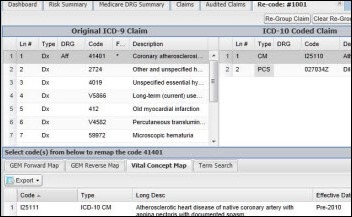






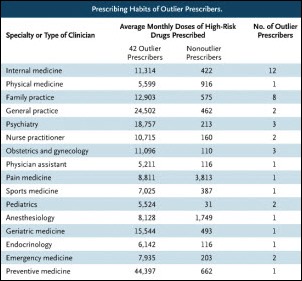


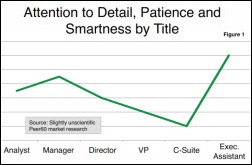

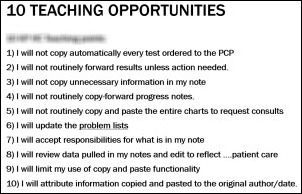


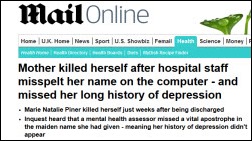





Legacy Health in Portland went from Cerner to Epic. There was another one at the same time, before Aurora, but I can’t recall who.
Children’s Medical Center of Dallas switched from Cerner to Epic. University of Utah is changing to Epic inpatient from Cerner. I believe there is one more besides Aurora and Legacy. I need more coffee.
Cerner and Epic: Rex Healthcare, a member of the University of North Carolina Health Care System, has been running Cerner for several years. They are currently in the process of transitioning to Epic, with their go-live scheduled for mid-2014.
Horizon>Paragon: When you do talk to those customers, I think you should be reviewing whether or not they are were Horizon fits to start with. In the days when Horizon was an actively selling, the compensation difference for sales and the feature functionality was stark. Therefore the incentive was there to move smaller health systems to Horizon. What they found was that in dealing with the complexity, they could not effectively manage it… so Paragon is a valid choice considering the enticement to move. What I would also suggest is you query current Horizon customers that are fits for Horizon and see why they are NOT moving to Paragon. I think that comparison will leading to some interesting insights.
RE: Beer study. “Breaking news – studies show that people looking to get s**t-faced drunk buy cheap beer. Also, really drunk people hurt themselves. Film at 11.” 🙂
So the vendor has promised to still respect you in the morning ?
Well…if it’s coming from a vendor it must be true.
Especially if it’s from a great IT company / EMR vendor like McKesson.
Or if it’s from their recently retired in paradise CEO or the clinical IT genius schmuck responsible for the Better Health 2020 grand announcement, what’s his name ?
And you guys, actually believed all that hype ?!?
Maybe you deserve the outcome.
And to Silence Dogood: “…dealing with the complexity, they could not effectively manage it…”
What an understatement. You MUST be British !
Why not call Horizon what it was and for so many unfortunate ones – still is: a crappy collection of bits and bytes. I cannot call it even “software” – because it isn’t one.
There nothing “complex” about it as there is nothing complex about what bears proverbially do in the woods.
I’ve read about that beer study in a bunch of different places, all saying that it implicates particular beers as being responsible for the higher proportions of ER visits. It don’t think it does? Just click through to the actual study and the abstract right up front reads:
“In an urban emergency department on weekend nights in 2010 and 2011, 105 interviews assessed feasibility of collecting alcohol brand consumption data from injured patients who drank within 6 h of presentation, with responses to the orally administered survey specifying 331 alcohol brands recorded on a netbook computer. A Kruskal–Wallis test adjusted for tied ranks assessed demographic differences; confidence intervals were created around comparisons with national brand shares. The study found collection of such information feasible;”
It’s a feasibility study about whether it’s even possible to collect this kind of information. It doesn’t make any conclusions about any particular beer brands and their relation to ER admissions, as far as I can tell (the study is gated).
I bet it’s those sneaky craft beer makers that fed this to the media, then got them drunk so they wouldn’t read the abstract …. but sophisticated-drunk, so they didn’t end up in the ER
“It was clear to both of us that the only way to make health care more affordable is to diminish the role of third-party payers. Let consumers and providers interact through market forces to drive down prices and drive up quality, like we do when we buy groceries, clothing, cars, computers, etc. Drop the focus on prepaid health plans and return to the days of real health insurance—that covers major, unforeseen events, leaving the everyday expenses to the consumer—just like auto and homeowners’ insurance.” YES!!
Loma Linda Univ Med Center switched from Cerner to Epic with their go-live This past Feb. The lab stayed on Cerner.
Beer correlated with ER visits in Baltimore and Natty Bo doesn’t get a mention? I question the scientific validity of this study. (joking)
Lucile Packard Children’s Hospital is going from Cerner to Epic.
Regarding the apostrophe issue – I’ve seen issues first-hand where HL7 data either causes errors or ends up with a mismatch because of character sets. If you look at ANSI vs. UTF-8, there is a right-slanted apostrophe character that exists in ANSI that does not exist in UTF-8. Just having two systems that use different standards could have resulted in the mistake. Some systems have algorithms to convert the character, some drop it completely, and some simply error out all together. Either way, it paints a picture of what can happen with assumptions regarding patient data matching.